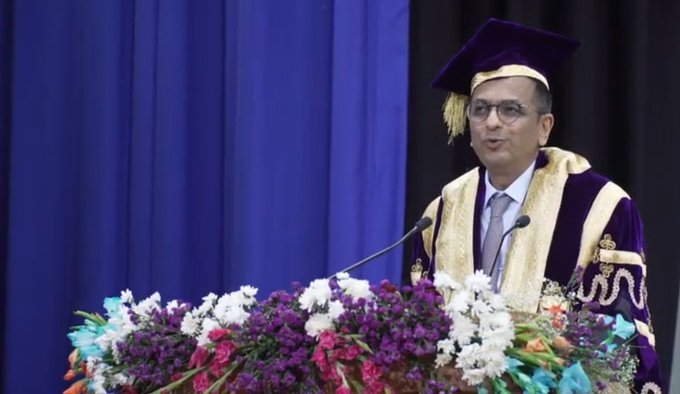Last Updated on February 25, 2023 4:57 pm by INDIAN AWAAZ
Darshan Solanki, a student hailing from Gujarat, allegedly died by suicide on February 12 in IIT Bombay

AMN / WEB DESK / Hyderabad
Chief Justice of India DY Chandrachud today expressed deep concern over growing instances of suicides by students and said his heart goes out to the bereaved kin of the victims.
He said he was wondering where our institutions are going wrong, that students are forced to take their life.
Referring to the incident of alleged suicide of a Dalit student recently in IIT Bombay, he said such incidents, involving the victims from marginalised communities are becoming common.
Darshan Solanki, a first year student hailing from Gujarat, allegedly died by suicide on February 12 in IIT Bombay.
Delivering the convocation address at The National Academy of Legal Studies and Research (NALSAR) here, the CJI said judges in India have a crucial role in making a dialogue with the society inside and outside the court rooms to push for social change.
“Only recently I read about the suicide of a Dalit student at IIT Bombay. It reminded me about the suicide of an Adivasi student in National Law University in Odisha last year.” “My heart goes out to the family members of these students. But I also have been wondering where our institutions are going wrong, that the students are forced to give up their precious life,” the CJI said.
“In these instances, incidents of suicides from marginalised communities are becoming common. These numbers are not just statistics. They are stories sometimes of centuries of struggle. I believe that if we wish to address this issue the first step is to acknowledge and recognise the problem,” Justice Chandrachud said.
He said he has been emphasising on the mental health of lawyers and equally important is the mental health of students.
He further said not only must the education curriculum inculcate a sense of compassion among students but the academic leaders must also be sensitive to their concerns.
“I think the issue of discrimination is directly linked to the lack of empathy in educational institutions,” Justice Chandrachud added.
” If we as a legal profession have to go on, we have to change our approach. We have to move past the mindset that we are reaping as we has sown, i.e., justifying earlier practices as the norms for the future”, said CJI.
Allegations of harassment
Darshan’s family said that he was being harassed at the premier institute’s campus. Darshan had mentioned to his family that he was facing caste discrimination after his friends and classmates came to know of his caste background, the family said.
“When he came last month, he told me, and mom-dad, that there’s caste discrimination happening there,” his sister Jhanvi Solanki told NDTV. His aunt added that Darshan had told them that many students did not like the fact that he was able to study for free at the educational institute.
